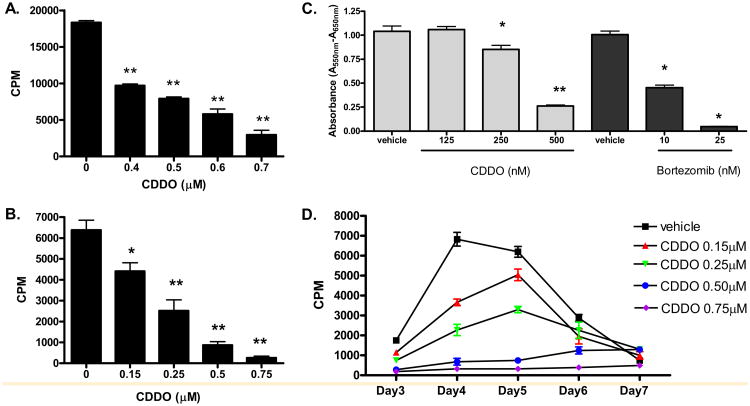Figure 1.
CDDO inhibits the mitogen and alloantigen-induced T cell proliferation. (A) BALB/c splenocytes were exposed to ConA (2 (μg/mL), plus 4 different concentrations of CDDO or vehicle and cultured for 2 days as described in Materials and Methods. T cell proliferation was significantly inhibited in a dose-dependent manner in the presence of ≥0.4 μM CDDO. (B, D) BALB/c splenocytes were cultured with irradiated B6 splenocytes at a 1:1 ratio for 4 days (B) or 3-7 days (D), then pulsed with [3H] thymidine for 16 hours prior to harvesting as described in Materials and Methods. T cell proliferation was significantly inhibited in a dose-dependent manner in the presence of ≥0.15 μM CDDO (significant differences compared with vehicle control, *P < 0.05 and **P < 0.01). Results from 1 of 4 independent experiments are presented. (C) B6 splenocytes (2 × 105 cells/well) were exposed to ConA (2 μg/mL), with different concentrations of CDDO, bortezomib, or individual vehicles. Plates were incubated at 37°C and 5% CO2 for 48 hours, then an MTT assay was performed. T cell proliferation was significantly inhibited in the presence of 250 and 500 nM CDDO (P < 0.05 and P < 0.01, respectively) and in the presence of 10 and 25 nM bortezomib (P < 0.05) compared to their vehicle controls (ANOVA with Dunnett's posttest comparison).

